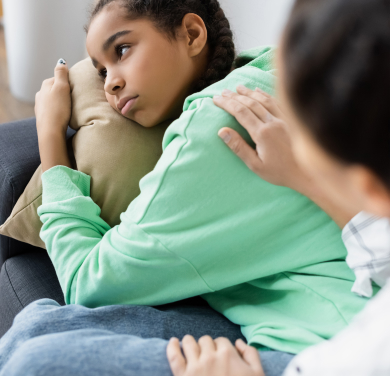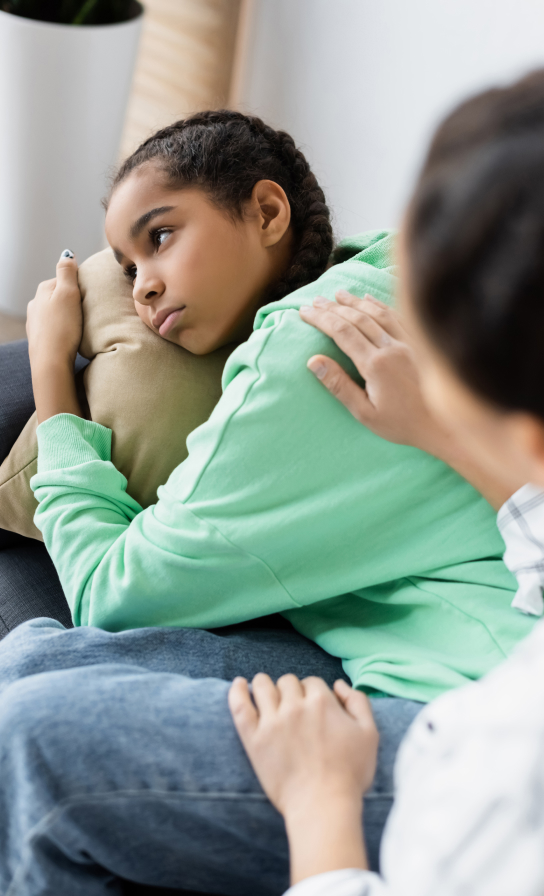
SUPPORT FOR PARENTS
Every Young Person is Different
As your child grows up and starts doing more things on their own, it becomes harder to understand their thoughts and feelings. When teens go through puberty, their bodies change, which can lead to moodiness, irritability, and anxiety. These feelings can be completely natural.
Trust Your Instincts
You know your child. If you start to see signs of feeling hopeless or worthless, avoiding regular friends and activities, or talking about suicide—these are not usual behaviors for teens and are cause for concern.
Open Communication Is Key
Don’t be afraid to talk with your child about mental health and suicide. Check in about how they are feeling often.
Ask open-ended questions that can’t be answered with a simple “yes” or “no”. Listen without judging them and try not to offer quick fixes or solutions to the challenges they may be facing. Just showing support for their feelings can go a long way.
If you are concerned about your child’s safety, it’s okay and important to ask, “Are you thinking about killing yourself?” Asking doesn’t hurt and it could save a life.
Connect With People You Trust
If you’re going through a tough time, it’s okay to ask for help. We all need a little extra support sometimes. School leaders, teachers, coaches, and other staff are often skilled in dealing with these situations.
Call 911 if: an attempt has been made; a weapon is present; the person is lacking control and refusing help; or you are worried about the safety of yourself or others.
We’re here to help. Let us listen.
Contact 988 Maine today.
